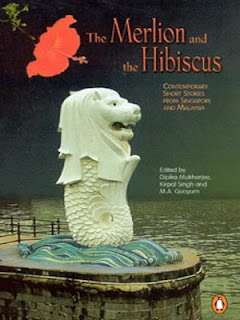Authors and Publishers: Dipika Mukherjee considers a relationship-in-progress
In our modern western world Authors and Publishers rarely meet, let alone become good friends.
Growing up in India, I had heard the stories of the Bengali
Renaissance being ushered in by a small group of writers and publishers who were also friends, including
giants like Ram Mohan Roy, Isvar Chandra Vidyasagar and Michael Madhusudan
Dutt who mentored new voices as well as wrote powerfully. As an
underduate student of English Literature, I read of the Hogarth Press run by
the Woolfs, which gave a voice to the Bloomsbury group.
Unfortunately
my very first experience of publishing was anything but congenial and friendly. I
had gone to meet the publisher of Penguin, India, then headed by a man who had
turned Penguin’s fortunes around in Asia and was considered no less than a God.
It was made clear to me that it was my great fortune that he was meeting me at
all, and after he rejected the book proposal I had come with but signed me on
to edit an anthology of Southeast Asian Writing, I took those crumbs as manna
from the heavens.
An early Penguin experience taught me
to value the small independent publishers. Those in India and Malaysia have
become good friends and colleagues, often my first readers.
I have two publishers in London now, and perhaps due to geographical distance, I had never met them. Most of our conversations are on email, and although I have met my publicists multiple times, the editors seemed to be harder to meet.
I
am in London now, to receive the Virginia Prize for fiction 2016, and launch Shambala Junction. The prize ceremony on Nov 23 in Richmond, in the place where the
Woolfs started their Hogarth Press was incredibly moving, especially as my husband and son flew in from the US for the ceremony. I also finally met Cheryl Robson, Aurora Metro's most gracious publisher, who had offered to host me in her home for my launch.
The day after the book launch, we set out for the
home of the publisher of Repeater Press, Tariq Goddard. Repeater had published Ode To Broken Things in May 2016, and the book was selling well;
they had also just sold the audiobooks rights to Audible. But more than the
sales, I had been intrigued by the emails exchanged with Tariq for over a year
and a half, where he had vacillated between diplomatically telling me to stop being a prima
donna to making it clear how much he loved Ode To Broken Things despite some the edits I was unwilling to
make.
We stayed overnight at an 1850s farmhouse, a
messy wonderful home with hidden nooks and corners stuffed with books, two
children and a dog. We had a delicious meal over wine and whiskey and conversation,
discussing the living local writers in the area (V.S Naipaul and Vikram Seth)
as well as the dead (Thomas Hardy).
In the morning we talked over Proust and Ferrante over tea as the sun rose over gentle green hills, the blue skies a welcome change from the recent Delhi smog. I had found someone with whom I could talk freely about how tortured I was about my next book, which wanted to be a memoir but I'd have to make it creative non-fiction if I wanted to preserve familial relationships. We talked about writing about bereavement and pain.
Looking at my family at my
publisher’s home, I realized that this was the culmination of a lifelong
dream, of writing talking me to beautiful places filled with erudite and witty
minds. Of living many lives in the one I have been given.
It
is a very Happy Thanksgiving indeed this year.






Comments